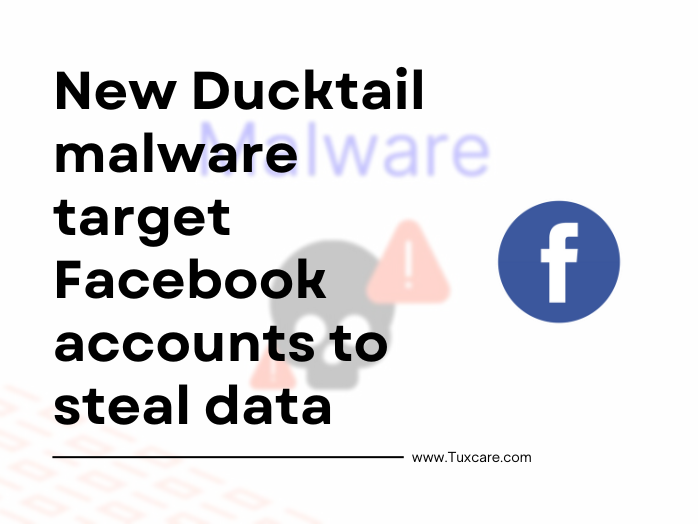New Ducktail malware targets Facebook accounts for data theft
Attackers are using a Windows malware called Ducktail to steal Facebook accounts, browsing data and crypto wallets.
Ducktail is associated with Vietnamese hackers and relies mainly on social engineering attacks via LinkedIn, spreading .NET Core malware masquerades as a PDF document that allegedly contains details about a marketing project.
According to researchers, most of the counterfeit baits for the campaign relate to games, subtitles, adult videos and cracked MS Office applications that are hoisted in ZIP format on legitimate services.
Ducktail is written in PHP and was first discovered in July 2022 by researchers from WithSecure. For the new strain, Ducktail has replaced the older .NET Core information-stealing malware used in previous campaigns with one written in PHP.
On Ducktail’s chain of infections, the post-execution installation takes place in the background, while the victim sees fake ‘Checking Application Compatibility’ pop-ups in the frontend, waiting for a fake application sent by the scammers to install.
After that, the malware is extracted to the %LocalAppData%\PXT folder, which contains the PHP.exe local interpreter, various information theft scripts, and supporting tools.
While the targeted data includes extensive Facebook account information, sensitive data stored in browsers, browser cookies, cryptocurrency wallets and account information, and basic system data, the information collected is not exfiltrated to Telegram, but is stored on a JSON website that also stores account brands and data necessary for fraud on the device.
In the recent attacks, Ducktail expanded the target range to include regular Facebook users and capture all the valuable information they have stored on their accounts.
If the account is a business account, the malware attempts to obtain additional information about payment methods, cycles, amounts spent, owner data, verification status, owned pages, PayPal address and more.
The sources for this piece include an article in BleepingComputer.



 Documentation
Documentation Login
Login



